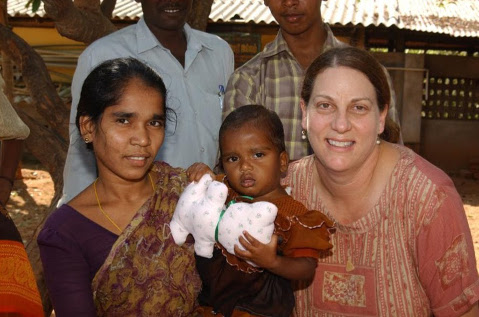The Push for Equality Continues
International Women’s Day Focuses Resolve Both Here and Abroad

In 1908, thousands of women flooded the streets of New York City calling for improved working conditions and the right to vote. This nascent protest movement, which spread to other areas of the world, marked what some consider the first International Women’s Day.
Since that time, International Women’s Day has grown and extended its reach globally through the decades. It is now recognized and supported in more than 100 countries across the globe, serving as a vehicle to celebrate the progress made toward creating a more gender-inclusive world, as well as a catalyst to encourage individual and collective actions that empower women and promote gender equality.
Improvements in gender equality have been shown to have a positive impact on people, families, communities, and societies as a whole. The more that women and men can live and work together as equal partners, and the more they can share essential resources including food, shelter, health care, and education; fulfillment of family responsibilities; ability to express their opinions; control of economic assets; and freedom from fear and violence, the easier it is to secure a better life for the entire family.
This International Women’s Day holds new meaning for many in the U.S. and throughout the world. It reminds us that to preserve a century of hard-won gains toward gender equality, we must maintain the same commitment and resolve that sparked the movement initially — that heartening spirit that inspired millions of women (and men) to participate in the Women’s March in January. The number of people who came out to support that event demonstrated a degree of engagement and activism rarely seen on a national level.
At the same time, we can never forget about the millions of women, and girls, around the world who are still fighting for their basic rights. In many countries, being born female means being treated like a second-class family member and facing a lifetime of gender-based discrimination. Girls typically receive less food and health-care-related services than boys, leading to higher risks of malnutrition, illness, and disability. Millions of girls also face female genital mutilation, early marriage, and unsafe pregnancies that greatly compromise health and quality of life. In addition, the lack of education and employment opportunities available to girls and women reduces their ability to reach their full potential and to contribute to society fully.
In March 2006, when conducting site visits to tsunami-affected areas in southern India, I was asked to speak about women’s empowerment at an International Women’s Day event. The organization hosting the event had been established to improve the living conditions of rural women in the District of Cuddalore, Tamil Nadu, and was dedicated to increasing the social and economic empowerment of these impoverished women.
To help achieve this goal, “self-help” groups — designed to build a female support system and to foster income generating activities — were created. When I arrived at the event, more than 1,000 women representing over 50 self-help groups were already packed into the hall. Most of them were seated on the floor, with others crammed onto staircases and in adjoining hallways. Looking out at the sea of women, each with their thick, black hair pulled back into a long braid and sprinkled with fresh flowers, it was clear that they were honored to be invited to the special women’s day program.
I spoke about the importance of understanding the deeply entrenched values, norms, and attitudes that adversely affect women and the existing discrimination and disparities that hinder their progress. I talked about how opportunities to exercise power and authority are in many contexts greater at the local level than at the national level, and I spoke about how working together to gain the self-confidence, capacities, and resources required to reach their personal and group goals would allow them to move ahead as well as challenge gender inequality overall. Knowing that these women have to walk a tightrope daily, and that for them, life is a delicate balance between hope and despair, I congratulated them on their incredible courage and determination. These incredible women had come to hear me speak — I only hope they felt as uplifted and optimistic as they made me feel.
We can all hopefully look forward to the world where all human beings treat each other with dignity and respect, and in which men and women work together as equal partners to secure better lives for themselves, their families, and the entire global community.
Susan Fowler is an advisor to Direct Relief’s Programs & Partnerships.



